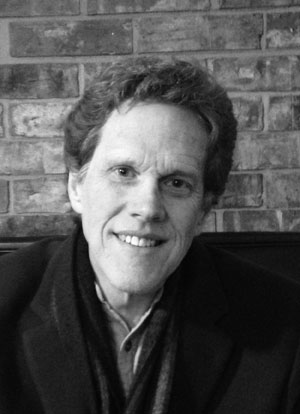 The light across a face has no face,
The light across a face has no face,
just as we have none in total darkness.
The light says, be calm, be vigilant,
be kind to those for whom eyes are cruel,
those whose look of misfortune begs
the question, do we look or look away.
They make of us a problem. They accuse
with their abjection as with their beauty.
They thaw their mittens in the sun. Light falls,
even tempered as honey, and so lies down
among the fallen. It is everywhere,
the unseen thing that makes all things visible.
It consumes its flesh in a phoenix of dawn.
It eats into our rooms, and we, who eat it,
we hoard it for the journey. Look around.
A moth taps a window, and we think
it just wants to be let out when, who knows.
Sometimes you can want what you have.
A man grabs his chest in the orchard
and falls, and the wind is so sweet and careless
it seems to him the fruit has never been
this close, this nameless. Day’s honey
stings, which is why we want more honey,
why we pour it into our darkened eyes.
And why not. I love so many men who fall
and cannot love me back, it gets old.
It gets me thinking of them the way a garden
thinks of the sun at night, how it rises
in its shoes of dirt and softly roars.
Light is new because it never is,
because it falls and falls just standing still.
It tells no story. It is the lamp behind
the story, the beam that falls beyond the film.
The moon knows. Or it becomes useful,
for some, as the face of one who knows,
the pool gone still to bring the sky to focus.
Truth is, it has a thousand faces, none
a moon. You can photograph them,
own them, pass them down for generations.
What your children see when they look
is different from child to child. It is honey
in their hands. If my gods are personal,
if my fathers now and then are gods,
it is because the face that lies down
across the light of heaven teaches something
light alone cannot. I entered the world
through the portal of my mother’s body,
through her gaze as she cupped my head
in one hand. Back then I filled that hand.
And when her face disappeared, the still
light of the empty room taught me how
to speak, to slip her name into the missing.
If my gods are personal, it is because
they never are, because I make them so.
Gods love a little maker. I believe that.
They love the little homes a day abandons
as it falls to sea with a star in its throat.
One face rises through another, suffused.
The new old mask eats into the younger,
but the eyes, they age a bit more slowly.
They are the child’s flashlight in the woods,
the stranger in the strange dream, the sweet
nightmare where a man, a father, clutches
his heart beneath the orchard and looks up.
The sun has never been more particular,
more different from all other suns. Its face
looks down on earth the way a mother looks,
or a mother’s absence. Somewhere a wind.
A stalk of corn rattles. And then it doesn’t.
Somewhere a bee hovers among the lamps
of apples. Invisibly it blurs its wings,
this way, that, looking for an opening.
Photo courtesy of the author.








